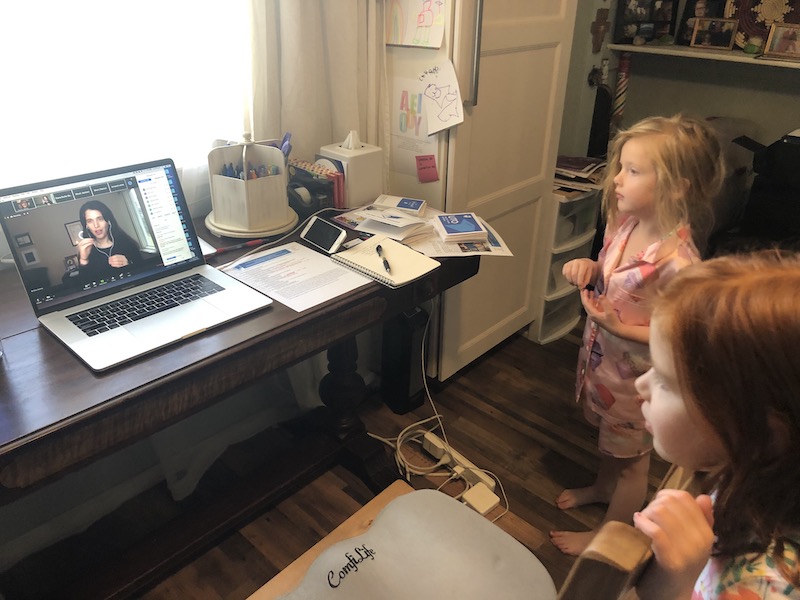Theology of Gratitude Conference
By: Diana Butler Bass

When the UTO/Bexley Seabury team told me that they were proceeding with their planned gratitude conference online, I felt both a little sad and apprehensive. As a teacher and speaker, I know the power of being face to face when discovering new ideas, hearing familiar concepts in new ways, and engaging questions in community. I worry that moving teaching to the internet undermines its essentially relational nature – for teaching is about far more than just communicating information and ideas. It is about weaving words in such a way that communities change.
This spring, I have been enormously sad not to be in rooms with others and engaged in this life-giving and spiritually rewarding creative process. As a person with the vocation of teaching, I understand the truly sacramental power of words, and I live into that sacramentality with as much seriousness as any priest does the liturgy. Thus, I’ve been worried that moving events online would trivialize teaching – an activity already poorly understood and under-appreciated in both our general culture and, sadly, in the Church. While I affirmed the persistence of UTO/Bexley Seabury in moving ahead, I nevertheless felt that admixture of grief and concern approaching the event.
What I learned – and what I think others learned during the online event – is that God showed up. Yes, it was different than what we usually do. Yes, there were tech glitches and internet issues. Yes, it was difficult to “read the room” and teach toward the questions bubbling under the surface. It was different.
But it wasn’t bad. It was good, in its own unique way. The papers were smart and strong, offering a variety of perspectives from the sort of philosophical and theological diversity one expects in The Episcopal Church. The real goodness showed up as we talked with one another, the panel, in the chat function (I enjoyed getting in there and making comments!), and replying to questions as we were able. In advance of the event, the panel committed to modeling what we were talking about – gratitude – and making our first words about one another’s work words of appreciation. We specifically said that, although we were working with academic ideas, we would not work in conventionally academic ways of one-upmanship and argument-winning. Instead, we would work from a posture of gratitude as we shared about gratitude. My sense is that commitment manifested itself very strongly in responses and in the panel discussions, and as the day unfolded, a surprising warmth and humor developed between the participants who could be heard and seen on screen and those whose comments were in the chat box. And, of course, far more people attended the event online than would have had we met in Chicago, and far more will continue to attend as these materials appear on the web and in print. So, the insights and surprises of the day will continue to invite many into a lively, smart conversation about gratitude, well beyond the conventional boundaries of time and space.
When the day ended (after nearly seven hours online!) I was exhausted but strangely happy. Other presenters shared that they felt the same. We stretched by employing a technology we didn’t know until recently. We were willing to make mistakes together. We managed the best we could and discovered that was really pretty good! It was different, yes. There were many moments of grace, moments that were viewed by hundreds, shared in virtual community, which have become memories that bind us. Virtual community was real community. Virtual learning was real learning. Virtual generosity was real generosity. Gifts were given and received. People were blessed and changed. Friends made, relationships deepened. And for that, we all felt grateful. God showed up.
None of this suggests that moving ahead, in the years beyond COVID-19, that all teaching should be online, or that the internet should replace the forums, conferences, and lectures held in sanctuaries and church basements, in parish halls and at campgrounds. Instead, it suggests that we can live more richly into a mixed spiritual geography, one that includes acknowledging – and not fearing – the rich sacramentality of God showing up in all sorts of spaces and through unbounded time. We will have face-to-face events again (and should and must), yet we are learning right now that virtuality can be challenging and holy, full of grace and gratitude. We shouldn’t lose that once we can hug again.
This moment, as full as it is of sadness and apprehension, also holds for us creative hope, a window into a future, when we learn ever-more-deeply of God-with-us, and open our theological, pedagogical, and liturgical imaginations to be a truly grateful Church. UTO/Bexley Seabury gave us many gifts at the gratitude conference. And this glimpse into a Church that both honors the traditions we’ve been given and takes the risks to go outside the box to live gratefully may have been one of the greatest and most unexpected gifts of the day.
And as I write that, I laugh. After all, what else should we expect? That the organization that gave us those little Blue Boxes could go outside the box should surprise no one.
Please note: UTO is so very grateful to Dr. Diana Butler Bass for her leadership at this conference, to all of the scholars for their faith and creativity, and to Bexley Seabury for its partnership. We are currently working with the scholars on their final papers, which are slated for release in the Anglican Theological Review in fall 2021, as well as on a study guide for using the videos from the conference and later the papers by small groups in congregations. While we are working now to ensure that we end this conference well, we are already looking ahead to the next scholars conference, for which we will focus on gratitude and liberation theology and collect theological essays on gratitude for publication, so stay tuned to the UTO E-News for all the latest updates as we continue to build up scholarship on gratitude.

